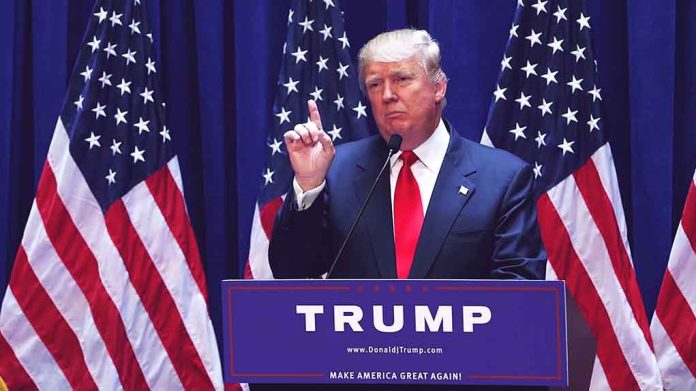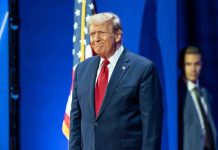
President Trump’s administration prepares to slash funding for a major US agency in Africa, potentially creating a power vacuum that China is poised to fill.
Key Takeaways
- The Trump administration plans to significantly reduce programs and staff at the Millennium Challenge Corporation (MCC), a key US agency funding African infrastructure.
- This reduction is part of Elon Musk’s Department of Government Efficiency initiatives to streamline federal spending.
- MCC has invested billions in infrastructure projects across Africa, supporting countries that meet democracy and governance standards.
- The scaling back of US infrastructure investment in Africa could allow China to expand its influence on the continent.
- The decision represents a shift in America’s strategic approach to economic engagement with developing nations.
Trump Administration Targets African Development Agency
President Trump’s administration is moving forward with plans to significantly reduce the scope and funding of the Millennium Challenge Corporation (MCC), a US agency that has directed billions toward infrastructure development in Africa. According to internal memos reviewed by various news outlets, the cutbacks are expected to reduce both programs and staff at the agency. The MCC was established as a vehicle for US investment in developing nations that demonstrate commitment to democratic principles and good governance standards, serving as a strategic counterweight to China’s growing influence across the African continent.
Trump to gut US agency funding Africa infrastructure projects – memo https://t.co/yA5SeGV62C
— Inquirer (@inquirerdotnet) April 24, 2025
Government Efficiency Drive Behind Funding Cuts
The reduction in MCC funding comes as part of a broader efficiency initiative led by Elon Musk’s Department of Government Efficiency, which President Trump established to identify and eliminate wasteful government spending. The agency has historically provided substantial economic assistance to African nations through infrastructure development grants, including projects in transportation, energy, and water systems. The MCC’s approach has been unique among US foreign aid programs, as it conditions financial support on recipient countries meeting specific criteria related to rule of law, anti-corruption measures, and economic freedom.
— Richard Collins, The Internet Foundation (@RichardKCollin2) April 10, 2025
Strategic Implications for US-Africa Relations
Foreign policy analysts suggest that scaling back MCC operations could have significant strategic implications for America’s position in Africa. China has aggressively expanded its economic footprint across the continent through its Belt and Road Initiative, providing billions in infrastructure loans to African governments with fewer conditions than Western institutions. By reducing US investment in African infrastructure, the Trump administration’s policy shift may inadvertently accelerate China’s growing influence in a region rich with critical minerals and strategic trade routes that are increasingly important to global supply chains.
Impact on African Development Projects
Current MCC projects across Africa may face uncertainty as funding reductions take effect. The agency currently manages development compacts worth billions of dollars across multiple African nations, supporting projects ranging from power generation to transportation infrastructure. Critics of the funding cuts argue that reducing America’s economic engagement with Africa could damage long-term diplomatic relationships that have been built over decades. Supporters of the administration’s approach counter that the US should prioritize domestic infrastructure needs before committing substantial resources abroad.
— Richard Collins, The Internet Foundation (@RichardKCollin2) April 6, 2025
America First Approach to Foreign Aid
The planned reduction in MCC funding aligns with President Trump’s “America First” approach to foreign policy and international engagement. Throughout both his terms, Trump has consistently advocated for reducing foreign aid spending when it doesn’t directly advance core US interests. The administration appears to be refocusing American economic resources toward domestic priorities while expecting allied nations to take greater responsibility for development in their regions. This policy shift represents a fundamental reevaluation of how the United States engages economically with developing nations, particularly in regions where strategic competitors like China are expanding their influence.
Sources:
- Trump to gut US agency funding Africa infrastructure projects: memo – Insider Paper
- Trump kills US agency funding Africa infrastructure | Business














